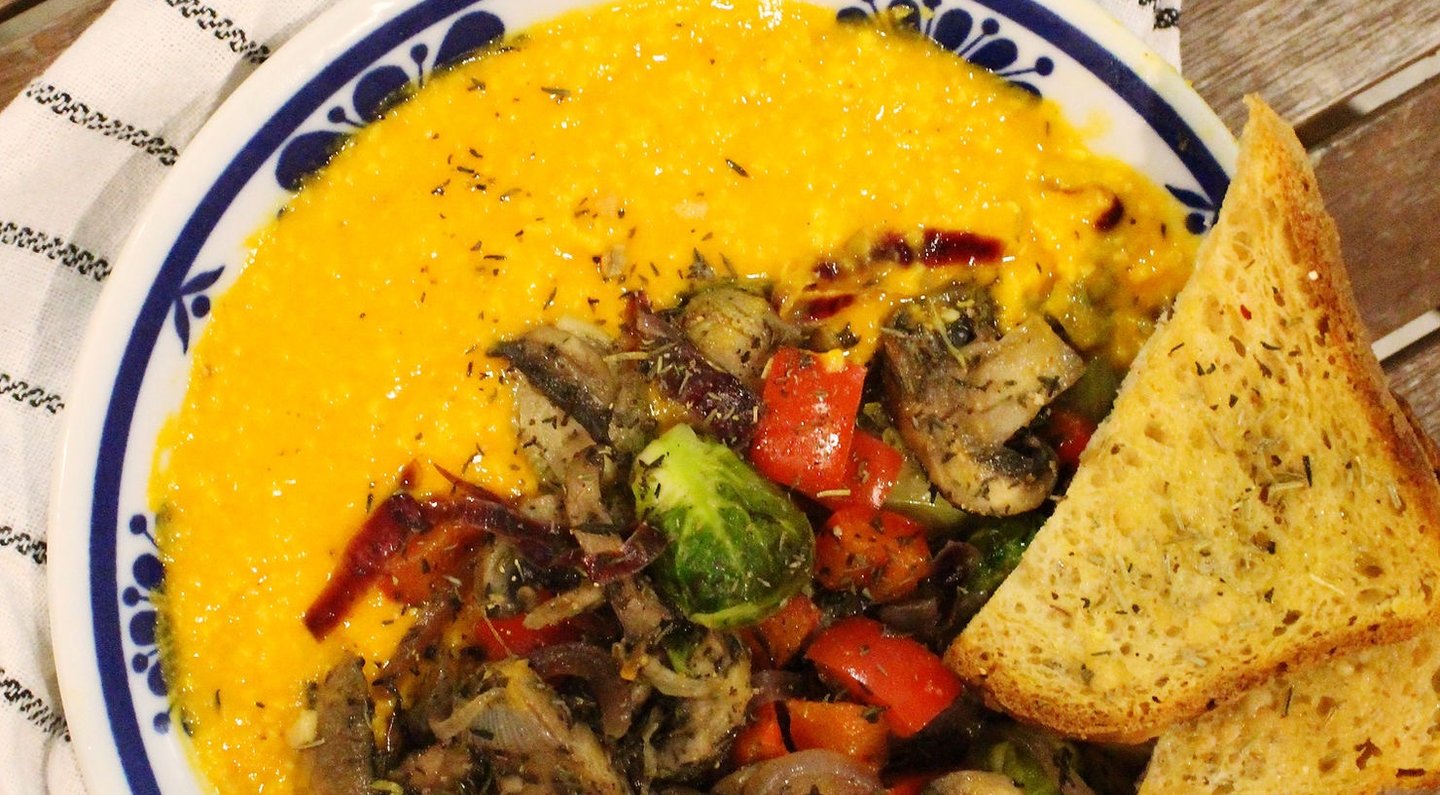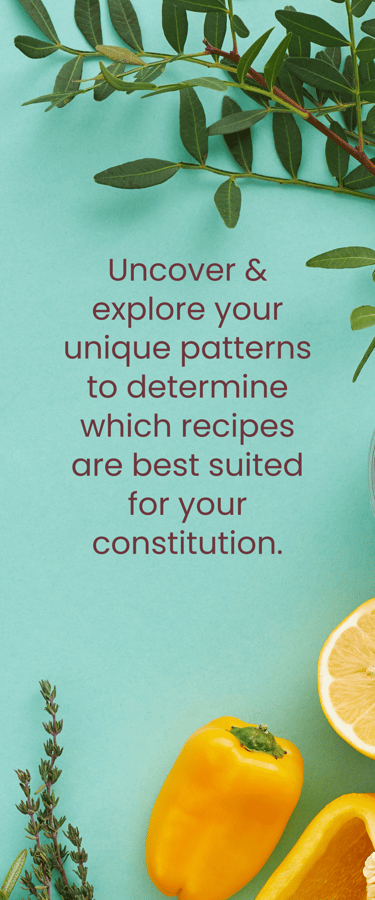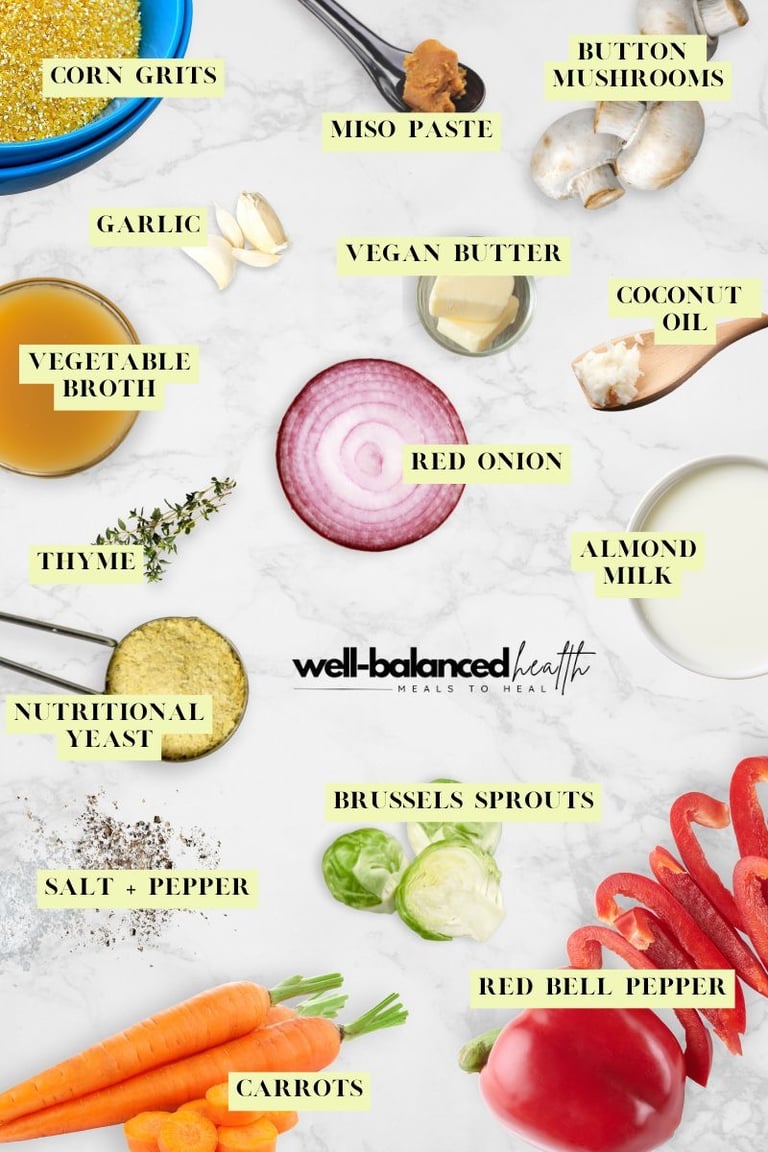

Polenta is one of those simple, comforting dishes that I always come back to. Beyond its versatility, polenta is a nutrient powerhouse — and gluten-free, fiber-rich, and packed with protein.
Polenta is a ground cornmeal and, yes — corn often gets a mixed reputation. Some see it as a nutritious whole grain, while others worry about its effects on digestion and blood sugar. The truth is, when sourced organically and eaten in its whole form (like polenta or fresh corn), it’s a great source of fiber, vitamins, and antioxidants. The key is choosing non-GMO, organic corn to avoid pesticides and processing that strip away its benefits. When enjoyed mindfully, corn can be a nourishing part of a balanced diet.
From a Chinese medicine perspective, whole grains like those in this super creamy carrot polenta help balance qi, support digestion, and promote gentle detoxification. I might suggest this recipe for patients who are struggling with fluid retention, fatigue, and even achy joints that get worse in cold weather.
Read on to learn more about the nutritional punch in every cozy, nourishing bowl of polenta.


Why I Love This Recipe: Let’s Talk TCM
Polenta is simple, comforting, and endlessly adaptable — the kind of food that meets you where you are. It has its roots in Northern Italy, where it was traditionally made with a variety of grains. Once maize made its way into Europe, the cornmeal version we know today became a staple.
From both a practical and Chinese medicine perspective, polenta checks a lot of boxes. It’s a gluten-free whole grain that’s naturally rich in fiber and protein — a combination that can be especially supportive for patterns like dampness and yang deficiency. These are common underlying imbalances I see connected to things like stubborn weight gain, low energy, and even some thyroid-related issues. Because whole grains are complex carbohydrates, they digest more slowly, helping you feel nourished and satisfied rather than depleted or hungry soon after eating.
In traditional Chinese food therapy, there’s a strong emphasis on what are called “coarse grains” — unprocessed whole grains like corn, oats, barley, millet, and beans. These foods are believed to support qi and strengthen digestion. They gently support elimination and balance without forcing or purging the system. From a Western view, their fiber helps keep digestion moving, while the nutrients in the outer layers of whole grains support metabolism, immune health, and even the nervous system.
I know grains can feel controversial in the West, and context matters a lot here. How food is grown, processed, and prepared makes a real difference. I always recommend choosing organic, non-GMO versions when possible, simply to reduce exposure to unnecessary chemicals, like glyphosate and let the food do what it’s meant to do: quietly nourish, ground, and support the body.



Join Our Mailing List.
Get delicious recipes, holistic health tips, expert advice & more.
Hungry for More?
Super Creamy Carrot Polenta Ingredients:
1 cup almond milk
3 1/2 cups water
1 cup polenta, or corn grits
1/4 cup nutritional yeast
1/2 teaspoon salt
1/4 teaspoon pepper
3 tablespoons (vegan) butter
3 large carrots
2 cups vegetable broth
1 tablespoon miso
2 tablespoons coconut oil
2 cloves garlic
1/2 red onion
2 cups Brussels sprouts
2 1/2 cups button mushrooms
1 red bell pepper
1/4 teaspoon salt
1/4 teaspoon pepper
2 tablespoons thyme
And for the bread:
4 slices of gluten-free bread
2 tablespoons (vegan) butter
5 garlic cloves
2 tablespoons rosemary, fresh or ground
olive oil


Why You'll Love This Recipe: Cozy AND Good for You!
Supports Gut Health & Digestion: Miso, garlic, and Brussels sprouts promote a healthy gut microbiome, while fiber-rich polenta and carrots aid digestion.
Loaded with Vitamins & Minerals: Carrots, mushrooms, and bell peppers provide essential vitamins A, C, and B-complex, supporting immunity, skin health, and energy levels.
Plant-Based Protein Powerhouse: Nutritional yeast provides a complete protein source with all nine essential amino acids, making it a great addition to vegan and vegetarian diets.
Healthy, Brain-Boosting Fats: Miso and coconut oil in the recipe support brain health. Miso offers beneficial omegas 3 & 6 while coconut oil is rich in medium-chain triglycerides (MCTs).
Anti-Inflammatory & Immune-Boosting: Thyme, garlic, and Brussels sprouts help reduce inflammation, support circulation, and strengthen the immune system.


How to Make This Super Creamy Carrot Polenta (Summary)
Bring almond milk and water to a boil, then stir in corn grits. Reduce heat and cook for 30 minutes, stirring often. Mix in nutritional yeast, butter, salt, and pepper until smooth.
Simmer chopped carrots in vegetable broth until soft, then blend with miso, adding reserved broth as needed. Fold the puree into the polenta.
Sauté garlic and onion in coconut oil, then add Brussels sprouts, mushrooms, bell pepper, salt, pepper, and thyme. Cook until tender, then stir in reserved broth and remove from heat.
Serve carrot-infused polenta topped with sautéed vegetables. (Optional: Serve with rosemary-garlic toast.)




